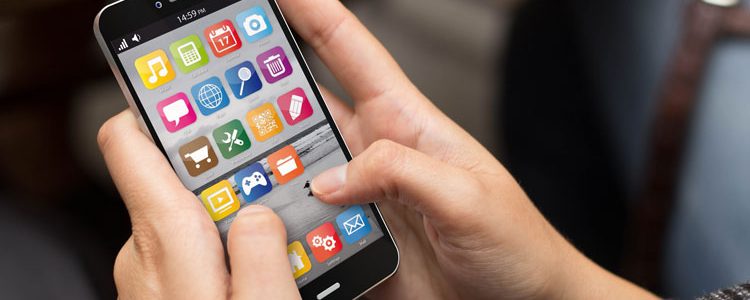If you have a teenager, there’s a good chance that social media plays a large role in their life. While apps like Instagram, Twitter and Facebook are some of the most popular, and seemingly harmless, there are anonymous apps that parents and teachers should be aware of. Have you heard of Kik, Yik Yak, Whisper or After School? We’ll let you know about each app and why many parents and officials are weary of them.
Kik Kik allows users to send text messages (to an individual or group), photos and videos while remaining anonymous. Teens love it because they can send unlimited messages without worrying about them counting toward their monthly text limit. They create a username so that their phone number isn’t visible to strangers. Because of its anonymity, your teen could think they’re messaging someone their age, when in reality, they never know who is on the other end. Users can also be randomly “kiked” by users sending sexual messages or photos. Because conversations and photos can’t be viewed publicly, it makes it tough for parents to monitor. Though the app is rated for ages 17 and older, tweens ages 11-15 are its main user demographic.
Kik allows users to send text messages (to an individual or group), photos and videos while remaining anonymous. Teens love it because they can send unlimited messages without worrying about them counting toward their monthly text limit. They create a username so that their phone number isn’t visible to strangers. Because of its anonymity, your teen could think they’re messaging someone their age, when in reality, they never know who is on the other end. Users can also be randomly “kiked” by users sending sexual messages or photos. Because conversations and photos can’t be viewed publicly, it makes it tough for parents to monitor. Though the app is rated for ages 17 and older, tweens ages 11-15 are its main user demographic.
Yik Yak Yik Yak is based on your location. Only Yik Yak users within a certain geographical area can post anonymously to a feed and others give it an “up vote” or a “down vote”. Posts with the most “up votes” move to the top of the feed. Critiques of this app include its ability to promote gossip, bullying and violent threats. Today, many high schools have a geofence placed around them, which essentially means anyone trying to use Yik Yak within a certain distance of the school is unable to do so.
Yik Yak is based on your location. Only Yik Yak users within a certain geographical area can post anonymously to a feed and others give it an “up vote” or a “down vote”. Posts with the most “up votes” move to the top of the feed. Critiques of this app include its ability to promote gossip, bullying and violent threats. Today, many high schools have a geofence placed around them, which essentially means anyone trying to use Yik Yak within a certain distance of the school is unable to do so.
Whisper Whisper is intended for users ages 17 and older. Users post what’s on their mind and share it with the Whisper community. It can be viewed as a “confessional” where users are posting things that they wouldn’t otherwise admit to their friends or the public. Many times, the content is inappropriate and sexual in nature. Teens can use the app’s nearby feature to view other whispers in their geo-location. For example, a high school student could whisper “If anyone wants to hook up behind the building at 4:00, I’ll be there.” However, many confessions are light-hearted and funny.
Whisper is intended for users ages 17 and older. Users post what’s on their mind and share it with the Whisper community. It can be viewed as a “confessional” where users are posting things that they wouldn’t otherwise admit to their friends or the public. Many times, the content is inappropriate and sexual in nature. Teens can use the app’s nearby feature to view other whispers in their geo-location. For example, a high school student could whisper “If anyone wants to hook up behind the building at 4:00, I’ll be there.” However, many confessions are light-hearted and funny.
After School After School is similar to Whisper in that it’s an anonymous and private message board for schools. Upon signing up for the app, a driver’s license or student ID is required to prevent anyone under age 17 from using it. Users can also sign in with their Facebook account. This app has been banned by many schools because users posting messages related to cyber bullying, gun threats and sexual rumors.
After School is similar to Whisper in that it’s an anonymous and private message board for schools. Upon signing up for the app, a driver’s license or student ID is required to prevent anyone under age 17 from using it. Users can also sign in with their Facebook account. This app has been banned by many schools because users posting messages related to cyber bullying, gun threats and sexual rumors.
We’re not telling you that your teen shouldn’t be trusted or interact with friends using apps. Be aware that though apps may seem harmless, they can be used for inappropriate things that could lead to major consequences. Your teen’s safety and well-being should be a top priority. Consider regularly monitoring technology use and signing a media agreement contract.

Leave a Response